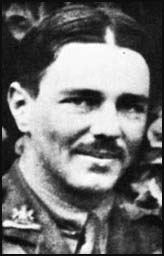 |
Wilfred Owen (1893 – 4 November 1918) was an English poet and soldier, one of the leading poets of the First World War. His shocking, realistic war poetry was heavily influenced by his friend Siegfried Sassoon and stood in stark contrast to the public perception of war at the time. |
Wilfred Edward Salter Owen was born on March 18, 1893. He was on the Continent teaching until he visited a hospital for the wounded and then decided, in September, 1915, to return to England and enlist. “I came out in order to help these boys– directly by leading them as well as an officer can; indirectly, by watching their sufferings that I may speak of them as well as a pleader can. I have done the first” (October, 1918).
Owen was injured in March 1917 and sent home; he was fit for duty in August, 1918, and returned to the front. November 4, just seven days before the Armistice, he was caught in a German machine gun attack and killed. He was twenty-five when he died.
The bells were ringing on November 11, 1918, in Shrewsbury to celebrate the Armistice when the doorbell rang at his parent’s home, bringing them the telegram telling them their son was dead.
Poems of Wilfred Owen
- A Terre
- Anthem For Doomed Youth
- Apologia Pro Poemate Meo
- Arms And The Boy
- At a Calvary Near the Ancre
- Conscious
- Disabled
- Dulce et Decorum Est
- Exposure
- Futility
- Greater Love
- Insensibility
- Mental Cases
- On Seeing a Piece of Our Heavy Artillery
- Smile, Smile, Smile
- Spring Offensive
- Strange Meeting
- The Chances
- The Dead-beat
- The End
- The Parable of the Old Man and the Young
- The Send-off
- The Sentry
- The Show
- Wild with all Regrets
View: Wilfred Owen Poems
Links
- Wilfred Owen Poems – selected poems
- Wilfred Owen Page
Related
